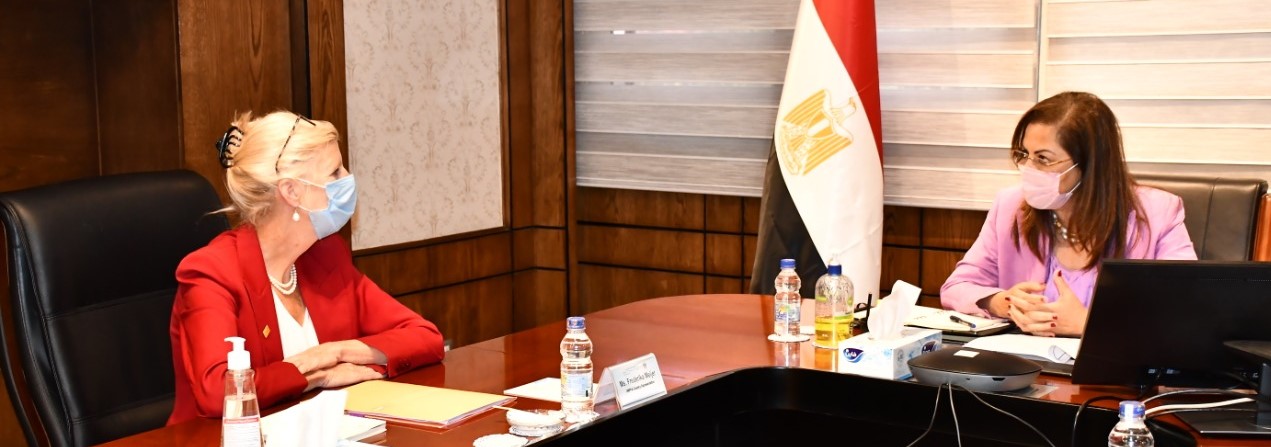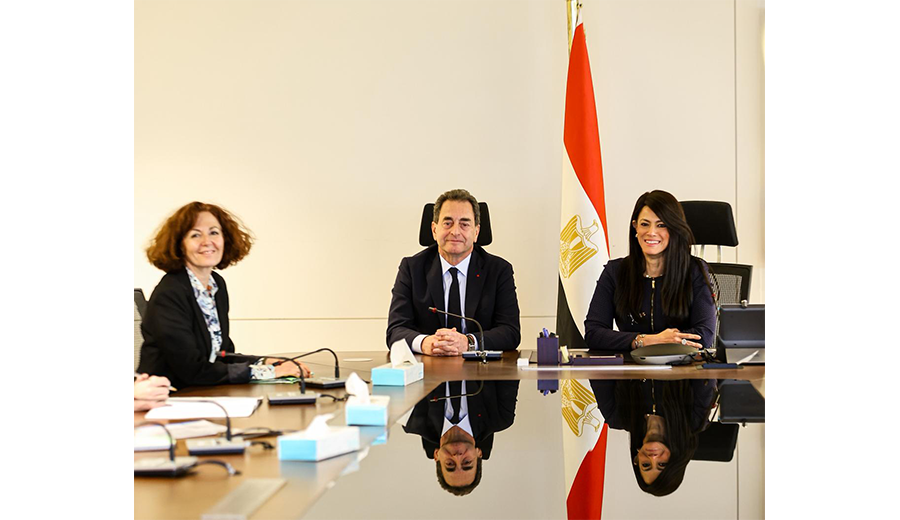Planning Minister reviews the family development plan in a meeting with UNFPA representative

09 June 2021
Egypt’s Minister of Planning and Economic Development, Dr. Hala El-Said met recently with Ms. Frederica Mayer, representative of the United Nations Population Fund (UNFPA). The meeting came in the presence of Jermaine Haddad, Assistant Representative of the Fund, Dr. Ahmed Kamali, Deputy Minister of Planning and Economic Development, Dr. Jamil Helmy, Assistant Minister for Sustainable Development Follow-up Affairs, Dr. Mona Essam, Head of the Sustainable Development Unit at the Ministry, Dr. Amira Tawadros, Director of the Demographic Center in Cairo. El-Said discussed reviewed the Egyptian family’s development strategy and its most important pillars and objectives. She also discussed several topics on top of which are raising the level of population characteristics and the initiative for a decent life. El-Said also explained that the projects that the Egyptian government is working on aim to improve the standard of living by focusing on social, demographic, cultural, and health aspects, including women's economic empowerment and women's health issues. During the meeting, El-Said stressed the aspiration to enhance cooperation with the United Nations Population Fund in adapting to the new reality in light of the Corona pandemic, as well as in achieving the UN sustainable development goals, Egypt’s Vision 2030, the family development strategy, as well as the initiative for a decent life. On the voluntary national report, El-Said explained that Egypt is preparing to present its third report at the high-level political forum for this year, stressing that the process of preparing the report is carried out following a participatory approach to exchange experiences with all development partners. El-Said indicated that some consultative sessions were held with development partners and stakeholders, which included meetings with United Nations institutions in Egypt, including the United Nations Population Fund. El-Said pointed out that the ministry will organize a side event at this year's high-level political forum on "How the localization of the sustainable development goals contributes to leaving no one behind," stressing the Egyptian government's commitment to continuing efforts to implement the sustainable development goals. El-Said emphasized the remarkable cooperation between the Ministry of Planning and Economic Development and the United Nations Population Fund. El-Said noted that 27 reports were launched to localize the sustainable development goals for each governorate for the first time. El-Said explained that the fund represents a strong and reliable partner to help the Egyptian government control population growth rates. For her part, Ms. Frederica Mayer, representative of the United Nations Population Fund, affirmed the Fund's desire to enhance cooperation with the Ministry and the Egyptian government in support of the government's efforts to control growth rates.









